In this tutorial, we will learn to use 1N747 Zener Diode with example circuits. It offers a Zener voltage (Vz ) of 3.6V with ±5% tolerance and a speedy reverse recovery time. Zener diodes are used for voltage regulation applications.
Zener Diode Introduction
A diode is an electronic device that permits the current to flow only in one direction, but there is an exception to it i.e., a Zener diode. A Zener diode is a diode that acts as a two-way switch. It means that it can conduct current in forward as well as reverse direction. It is a heavily doped diode and permits the reverse current when a specific voltage level is reached.
1N747A is a typical Zener diode that finds its applications in a wide range of electronic systems, from regulators to switches to clippers because of its reverse conduction quality.
This tutorial will inform with its pinout, features, specifications, example circuits, and applications.
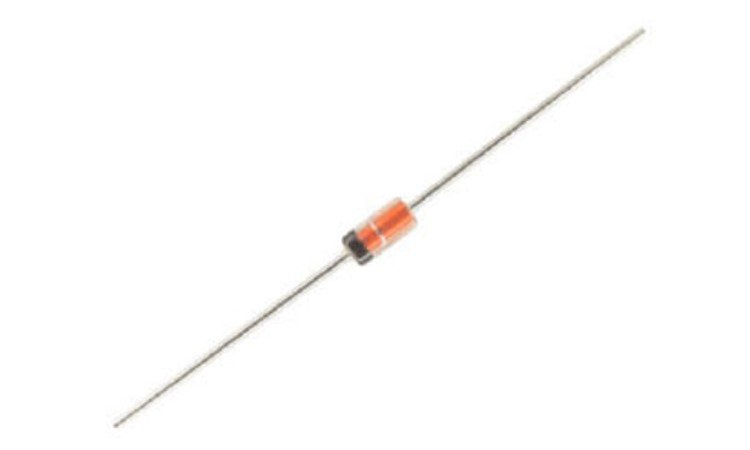
1N747 Pinout
Following diagram shows the pinout of the 1N747A diode:
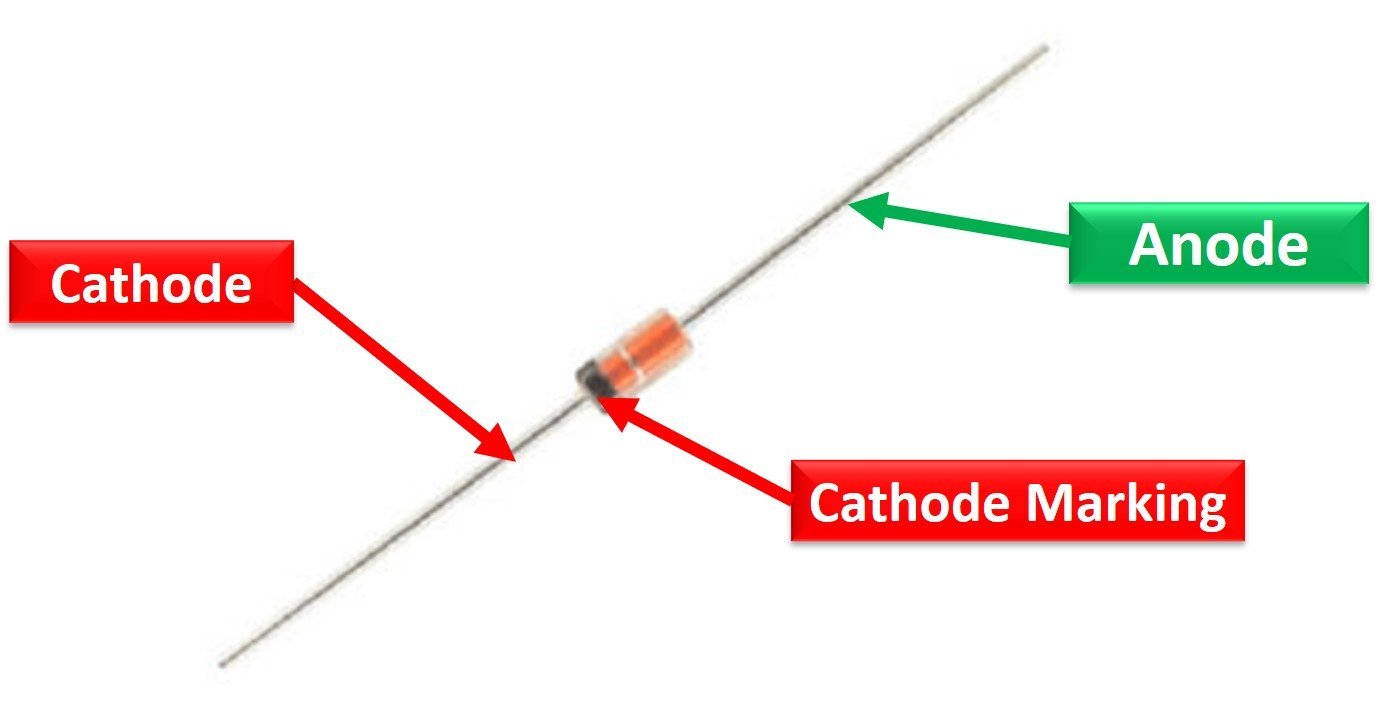
Just like a typical diode, this silicon planar also has two terminals. One is a positively charged anode, and the second terminal is a negatively charged Cathode.
The Zener diode is typically operated in reverse-biased condition.
1N747 Configuration
The configuration detail in tabular is mentioned below:
| Pin Name | Function |
|---|---|
| Anode | Zener diode anode pin |
| Cathode | Zener diode cathode pin |
1N747 Features and Specifications
- Power Dissipation: 500 mW
- Forward Voltage(IF=200 mA): 1.5 Volts
- Zener Bias Current: 20 mA
- Zener Voltage: 3.6 Volts
- Max Zener Current: 100 mA
- ± 5% Zener Voltage Tolerance
- Package Type: DO-35
Some of the other features are mentioned below :
- Cutting-edge reverse characteristics
- High reverse current carrying capacity
- High reverse breakdown voltage
1N747 Example Circuits
Now, we will see some of the example circuits of 1N747 in this section:
1N747 as a Voltage Regulator/Protection Circuit
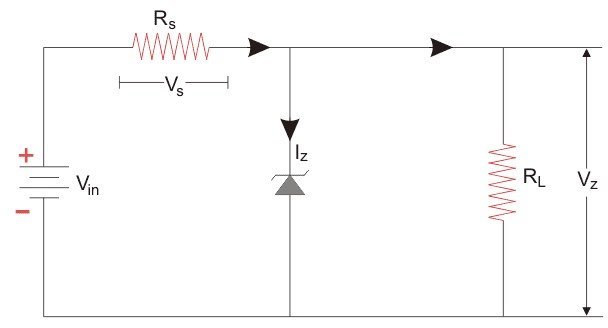
The schematic shown above is the circuit of a voltage regulator using a Zener diode.
The Zener diode is connected in reverse and parallel to the load.
Whenever a voltage greater than the reverse breakdown voltage is applied to the Zener, a substantial current starts to flow through the Zener diode. There is a little voltage drop across the Zener diode. If the voltage is increased further, the current also exceeds, but the voltage across the Zener remains constant and equal to its breakdown voltage. As the load is connected parallel to the Zener, so the voltage across the load is equal to the Zener’s breakdown voltage. It provides us with two benefits. First, the voltage is regulated or clipped to the level of reverse breakdown voltage. Secondly, all the high current passes through the diode instead of the load and protects it from damage.
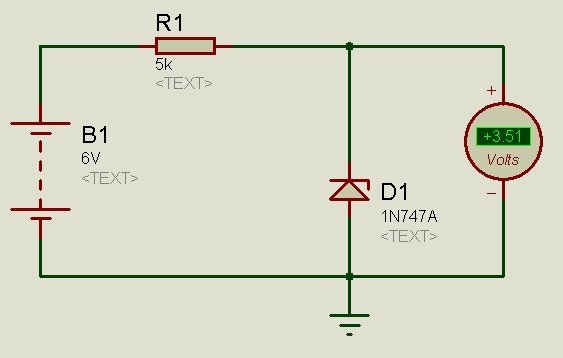
In short, if we require, for example, 10 Volts across the load, then we need a Zener diode with a reverse voltage of 10 Volts.
1N747 Double Clipper Circuit
This circuit is a full-wave clipper circuit. Two Zener diodes are connected back to back to perform the clipping.

The working is the same as the circuit described before. During the positive half cycle, ZD1 will be reverse-biased and perform the clipping of the input AC wave. And when a negative cycle comes, ZD2 will be reverse biased and clip the signal up to the reverse breakdown voltage.
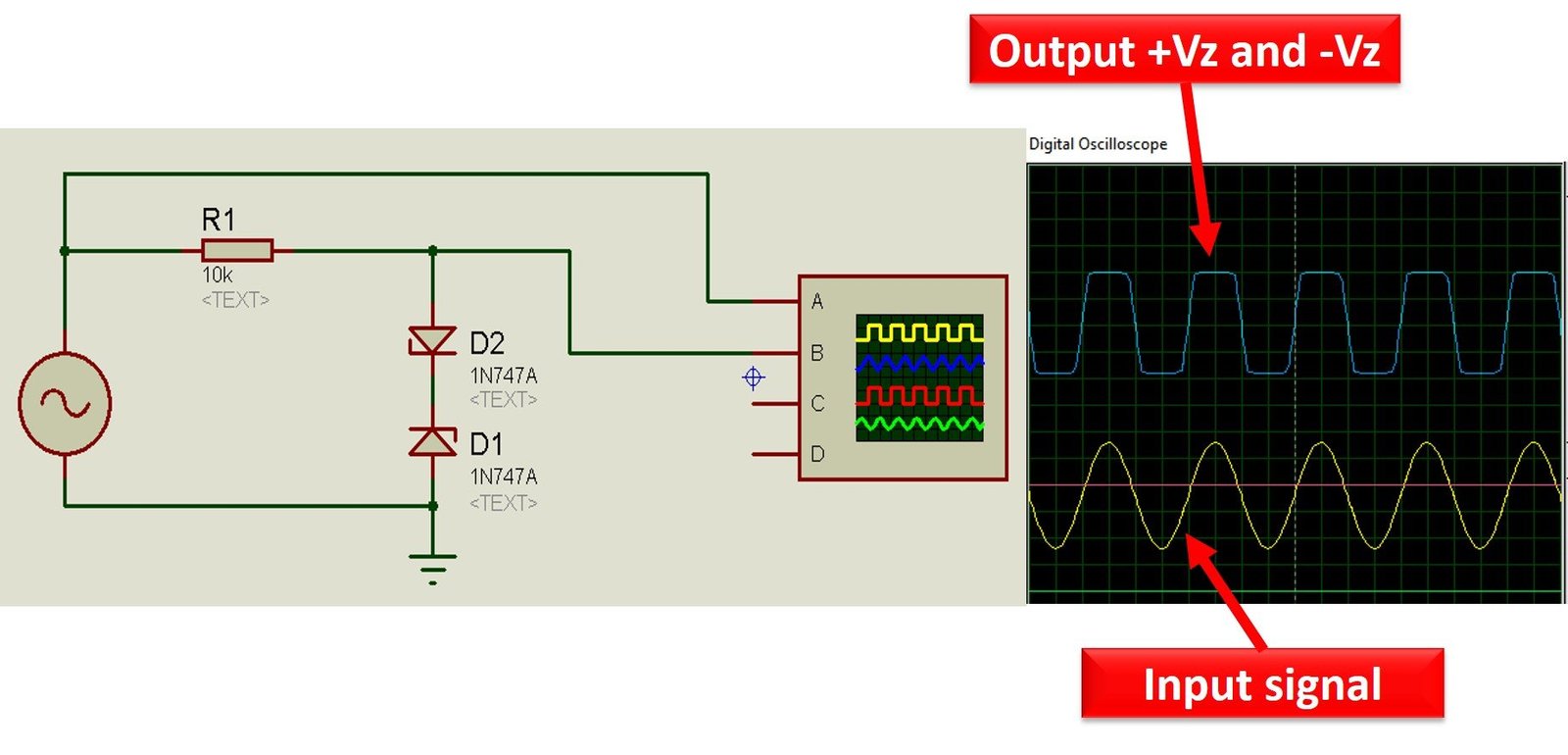
Practically, the voltage is clipped at the sum of Zener reverse voltage and its voltage drop.
These clipping circuits frequently find their application in Frequency Modulation Transmitters to remove voltage spikes and output a noise waveform.
1N747 Alternative Options
- TZX3V6C
- 1N5227B
- MMBZ5227BLT1G
Applications
- Clippers
- Voltage Regulators
- Switching Circuits
- Power supplies
- Freewheeling diodes
- Reference Voltage
- Protection Circuits
2D Diagram
The 1N747A comes in a DO-35 glass package. The 2d model of the diode is provided below:
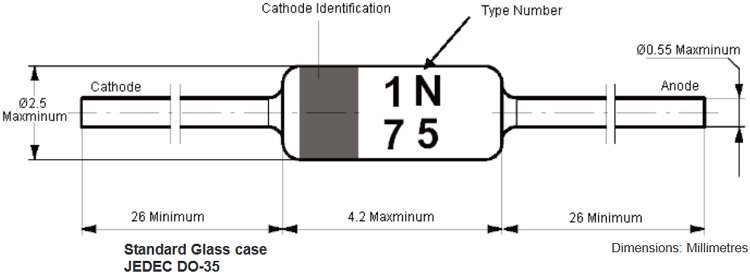
Datasheet
The link to the datasheet is given below to see more details and specifications of the 1N747A diode:
Related Articles: